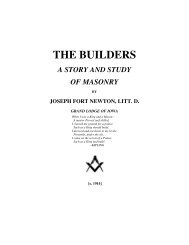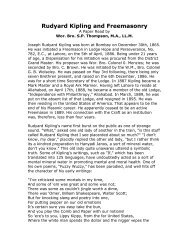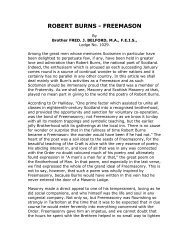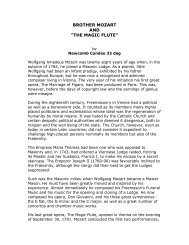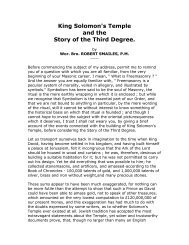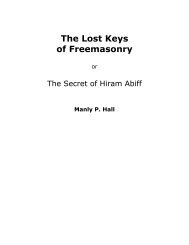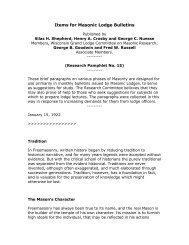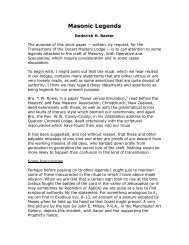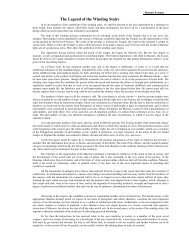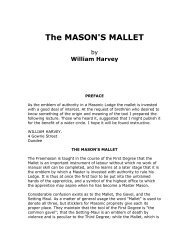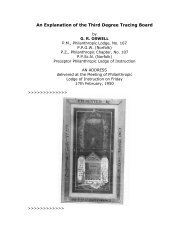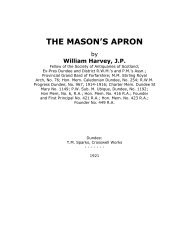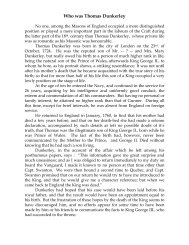The Albury MS. THE AMALGAMATED GUILD OF ... - RoseCroix.org.au
The Albury MS. THE AMALGAMATED GUILD OF ... - RoseCroix.org.au
The Albury MS. THE AMALGAMATED GUILD OF ... - RoseCroix.org.au
Create successful ePaper yourself
Turn your PDF publications into a flip-book with our unique Google optimized e-Paper software.
adopted distinctive dresses, whence they obtained the appellation of<br />
"liveries."<br />
In the 49th year of Edward, the franchise, or right to elect City<br />
dignitaries and Members of Parliament, transferred from the ward<br />
aldermen to the masters of the city companies, which in the next year<br />
were raised to 48, returning 148 members, being an average of about<br />
three each ; the first class sending six, the second class four, and the<br />
third class two. Subsequently, the elective franchise was extended to<br />
all liverymen ; and some of the companies were merged in others; for<br />
instance, the Freemasons in the Masons.<br />
<strong>The</strong> members of all the companies were sworn to keep secret the art<br />
of their "craft or mystery," and were <strong>au</strong>thorized by law to punish minor<br />
offences of the brethren. Under Richard 1I., a refoundation took place.<br />
<strong>The</strong>ir minutes were kept partly in Norman-French and partly in old<br />
English, and the inspeximus charters show them to have claimed from<br />
a time "whereof the memory of man is not to the contrary." <strong>The</strong>ir<br />
feasts were usually held twice in the year, at Christmastide and at<br />
Midsummer; that is, on the festivals of St. John, who in this way came<br />
to be considered the protecting saint or patron of all guilds, and<br />
furnishes a key to a present custom which is significant. <strong>The</strong> expense<br />
of these festivals was paid by common subscription.<br />
<strong>The</strong>ir bye-laws were made by common consent, and anciently called<br />
"Poyntz," which they were required to swear to observe regarding the<br />
qualification of members, keeping trade secrets, regulating<br />
apprenticeships, the company's particular concerns, and domestic<br />
management, including its funds. <strong>The</strong>y were to observe brotherly love,<br />
and their rites and religious ceremonies, for which purpose they had<br />
chaplains, and there was to be no difference between the rich and poor<br />
brethren, and they were not to go to law with each other without<br />
leave. At this time the officers were styled "wardens of the craft or<br />
mystery, master wardens or purveyors, guardians or wardens, bailiffs,<br />
custodes or keepers." <strong>The</strong>y had a bedel to summon them, a chaplain<br />
to pray for them, a clerk to keep their minutes, draw up their<br />
resolutions, and assist them in judicial business ; and a cook to purvey<br />
for them, who was an important corporate officer in most companies,<br />
and is still the moving spirit of many a lodge!<br />
<strong>The</strong> court of assistants, or councillors, is first mentioned in 1379.<br />
<strong>The</strong>se were the elders ("scheffen" of the Teutonic tribes), a council to<br />
assist the wardens in the performance of their duties, and were finable



